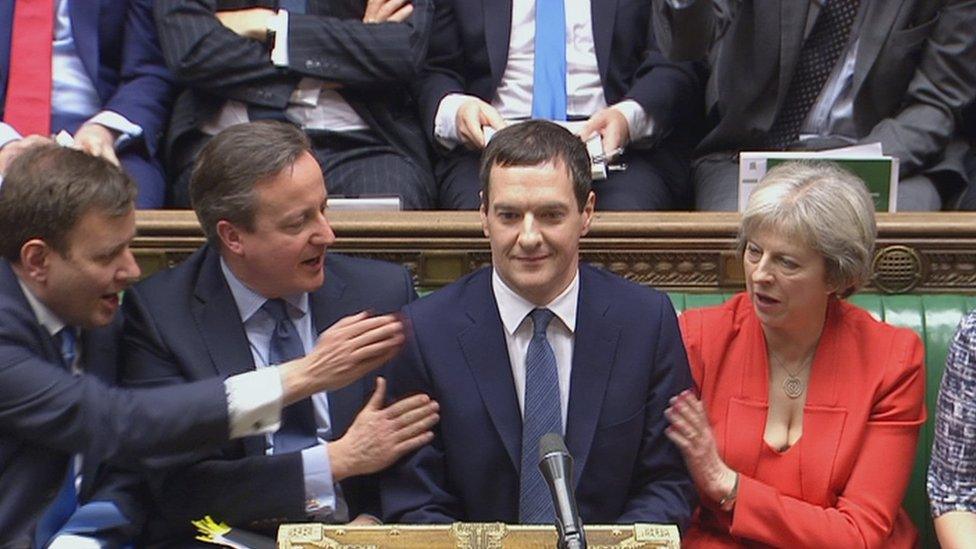Can Osborne defy political history?
- Published

Hold your nerve - you can cut public spending for ten years, and keep voters on side.
Hold your nerve - you can keep your credibility despite missing target after target, even breaking your own self-imposed rules.
Hold your nerve - you can promise tax cuts for millions of workers despite a much bleaker picture in the world economy.
Hold your nerve - you can make big reforms despite a small majority.
Not timid
Political history tells us ALL of that cannot be true. But as ever, George Osborne hopes, that precedent may not apply to him.
Despite expectation, this Budget was not dull, it was not timid.
The chancellor heralded bold changes that will change people's lives, and the terms of business for many thousands of firms - that tax on sugary drinks a surprise, perhaps designed to distract from the worse economic picture, dragging productivity and bleaker numbers.
There were vows too of higher tax thresholds, more powers moving from Whitehall, a totally new alternative to pensions. There's no question the chancellor wanted to show that he and the government have not run out of ideas.
But none of that can hide the big truth. The country is now expected to be less well off for years, to grow more slowly, even if ahead of our rivals.
Long-term aspirations
We are less prosperous than the chancellor told us in November, and will be for some time.
What we are asked to believe is that then, suddenly, as if by magic, money will flow back to lead us into the black just before the next general election.
Like with all Budgets, there is nothing remotely certain about this coming to pass.
But the outline of that promise more than hints at the chancellor's own long-term aspirations.
That if he holds his nerve, he can follow David Cameron into Number 10 - despite the mistakes and miscalculations of recent months.